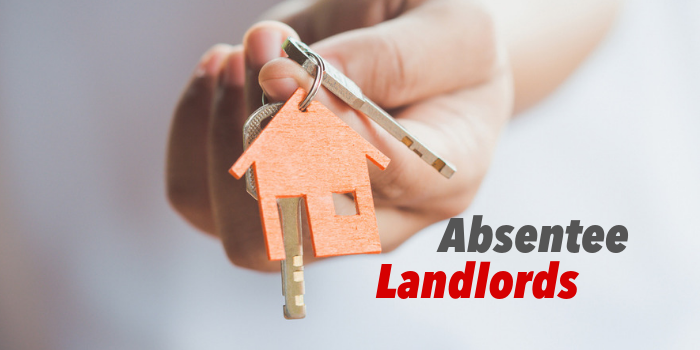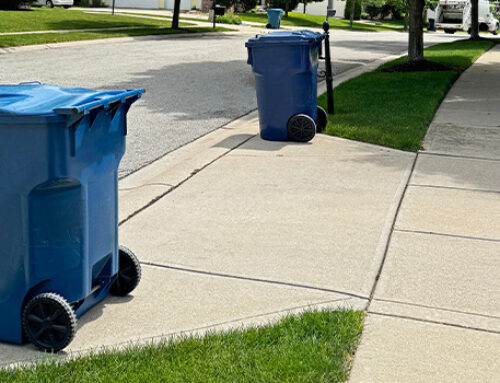It isn’t uncommon for a landlord to live offsite, away from their rental property. In fact, some landlords reside in homes considerable distances from their rental property, even in other states or parts of the world. Landlords such as these are referred to as absentee landlords.
Unlike an owner-occupied landlord, residing in the rental property, an absentee landlord lives outside the property and may visit the property weekly, monthly, yearly – or in some cases, not at all.
There are unique difficulties tenants may experience when dealing with an absentee landlord. Some of these challenges may include: the inability to resolve issues or express concerns in person, lack of ability to fully explain problems without the landlord visually assessing them or experiencing delays in communication due to the inability to readily reach one another (“phone tag”).
Fortunately, there are ways to prevent and handle difficult absentee landlords. Here are a few suggestions to try before involving an attorney:
Inspect the property before moving in. It’s a good idea to inspect the property for any pre-existing damage and take some photos so blame doesn’t fall on you later. Ask about the condition of the roof, plumbing, appliances, and HVAC. Take note of your findings, snap photos, and record dates and details.
Know your rights! When you are presented with your tenant rights upon leasing the property, read them thoroughly and get clarification on any questions you have. If you aren’t presented with them, get them! Be aware of your federal rights, state laws, and CC&Rs (if you reside within a homeowners’ association).
Stay advised of the current ownership and their contact information. Property can be transferred from one owner to another, and oftentimes volunteer HOA members and tenants aren’t made aware. Ask the association to provide you with updated information on current, or incoming, owners. It’s also beneficial to get their contact information. If they are hesitant to give out information, remind them of what benefits it could bring them – the ability to notify them of emergencies so they can be dealt with before repair expenses become too high, to keep them aware of any community or neighborhood issues such as theft, vandalism, or inclement weather, or to give them advance notice of upcoming maintenance schedules for appliances and HVAC.
Utilize communication resources. You don’t have to be face-to-face to communicate with your landlord. Conference calls, emails, video calls, texts, and simple phone calls can be used to keep everyone informed. Take advantage of technology and use it as a means to have open communication with distant landlords.
Make payments regularly and on time. Have you ever had to wait for a late check deposit to hit your account? If so, you are aware of how unpleasant it can be. You aren’t the only one who enjoys receiving a prompt monthly paycheck. If you are prompt at paying rent, you’ll likely have more leverage and a landlord that is more willing to cooperate.
Are you part of an HOA? Most HOA documents don’t provide details regarding renters and rental agreements. Check your HOA’s CC&Rs so you can be aware of any specific clauses regarding tenants and their responsibilities.
Related: Is Sealcoating Worth It?
While dealing with an absentee landlord can present its own set of unique challenges, there are many methods available to keep communication open in order to enjoy living in a rented property. By following the above tips, you increase your chances of developing a positive working relationship with an absentee landlord.







